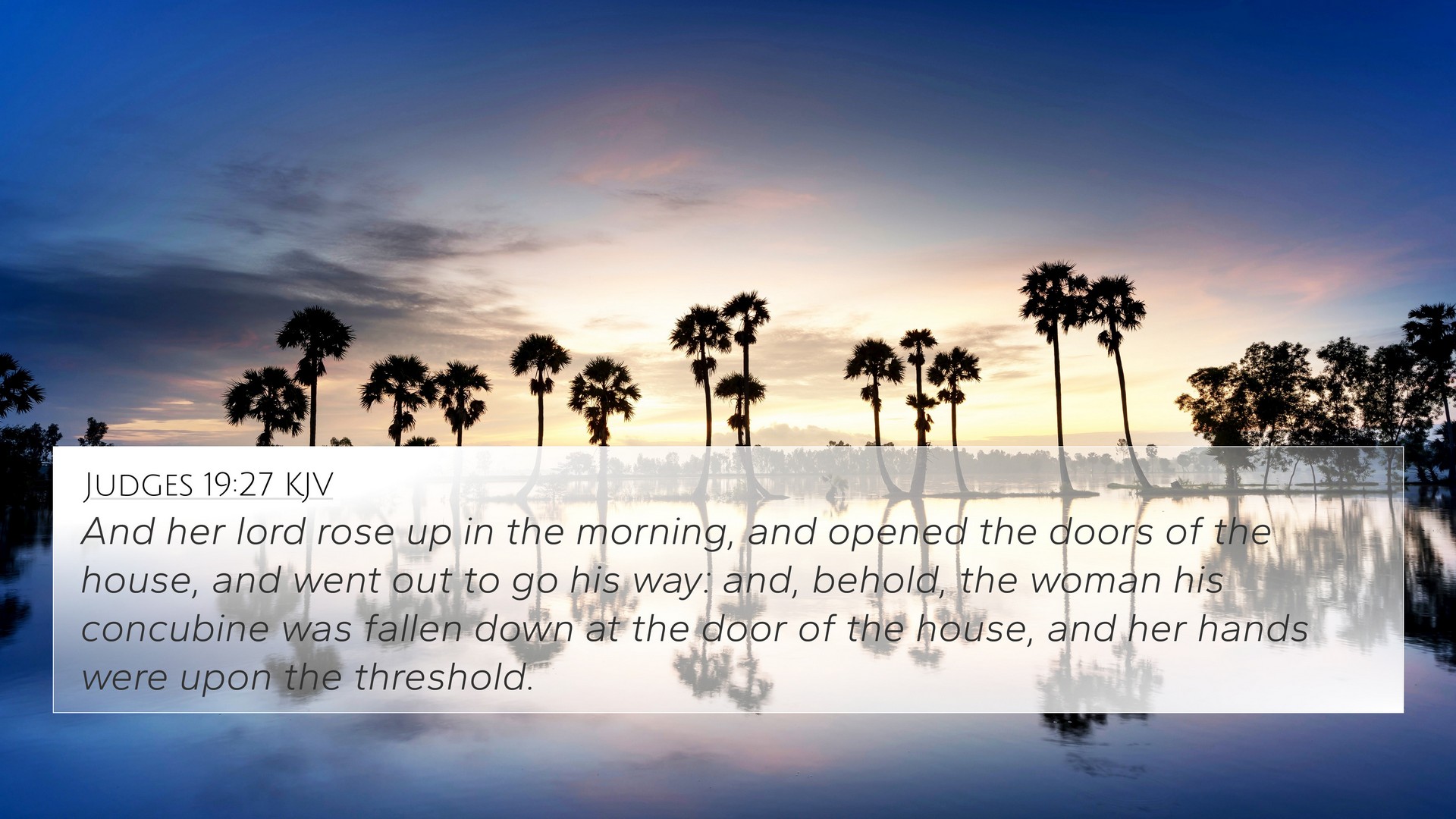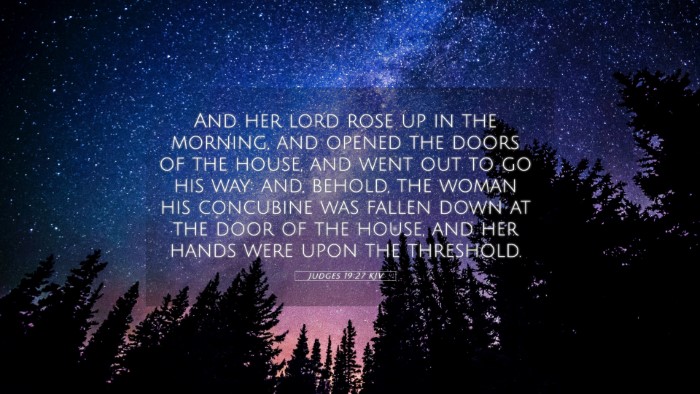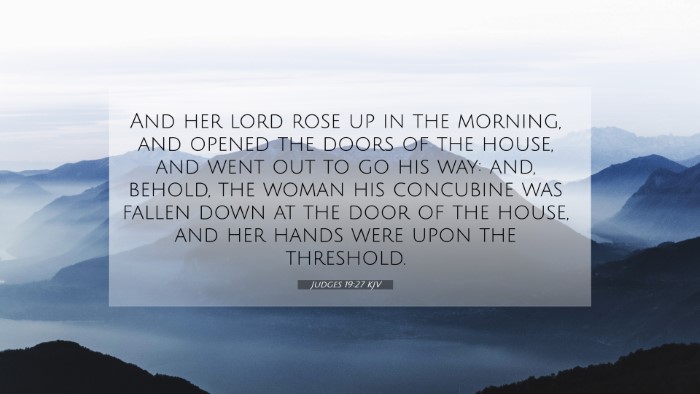Understanding Judges 19:27
The verse Judges 19:27 depicts a deeply disturbing scene in the context of an already troubling narrative. This complex verse, intertwined with themes of betrayal, violence, and tragedy, requires careful interpretation. Insights from respected public domain commentaries provide a multifaceted understanding of this passage.
Verse Text
Judges 19:27: "And when her lord rose up in the morning, and opened the doors of the house, and went out to go his way; behold, the woman his concubine was fallen down at the door of the house, and her hands were upon the threshold."
Commentary Insights
-
Matthew Henry:
Henry reflects on the sorrow and horror of this moment. He highlights the moral decay of the society depicted in Judges, showcasing how far Israel had strayed from covenant faithfulness. The imagery of the woman collapsed at the threshold emphasizes her tragic fate and the consequences of the man's choices.
-
Albert Barnes:
Barnes emphasizes the emotional gravity of the scene. He notes that the woman's position at the threshold is symbolic, representing both her vulnerability and the breakdown of the sacred bond of marriage. He also raises questions about the actions of the Levite, urging readers to consider the implications of his decisions.
-
Adam Clarke:
Clarke explains the historical and cultural nuances surrounding this text. He points out the Levite's role in the narrative and how the woman’s body lying at the threshold encapsulates a larger theme of betrayal within relationships. Clarke further emphasizes the need to contextualize this event within the greater narrative of the Book of Judges.
Thematic Connections
Judges 19:27 can be linked to numerous other scriptural passages. The themes of betrayal, suffering, and societal breakdown resonate throughout the Scriptures, providing rich soil for comparative analysis and thematic exploration. Below are some relevant cross-references:
- Genesis 34:2 - The story of Dinah, showcasing similar themes of violence and violation.
- Isaiah 1:6 - Describes the moral and spiritual decay of Israel, paralleling the societal failures shown in Judges.
- Hosea 4:14 - Addresses the consequences of unfaithfulness, connecting to the betrayal in Judges.
- Matthew 5:26 - Jesus’ teachings on relations and reconciliation reflect the personal failures highlighted in Judges 19.
- 1 Corinthians 6:19 - The body as a temple can relate to the sacredness of relationships, contrasting the tragic events in Judges.
- Galatians 6:7 - The principle of reaping what one sows is evident in the moral outcomes in the Book of Judges.
- Psalms 9:16 - The interplay of justice and injustice resonates with the themes in this passage.
Applications for Bible Study
Understanding Judges 19:27 encourages deeper engagement with scripture. Here are some tools for cross-referencing and thematic analysis:
-
Bible Concordance: Utilize a concordance to identify terms related to themes of betrayal and moral failure.
-
Cross-reference Bible Study: Focus on the connections between this verse and others to uncover overarching biblical themes.
-
Bible Reference Resources: Explore commentaries and study guides that delve into familial relationships within the Biblical narrative.
Conclusion
Judges 19:27 serves as a poignant reminder of the dire consequences of straying from God’s design for relationships and community. By cross-referencing this verse with others, readers can gain deeper insights into its meaning and apply its lessons to their lives. The narrative invites ongoing reflection on the state of our hearts and the health of our communities.
Additional Cross-References
Here are some additional verses that reinforce the themes present in Judges 19:27:
- Proverbs 6:32 - Warning about the consequences of infidelity.
- Matthew 18:6 - The gravity of leading others into sin.
- Revelation 21:8 - Consequences of immorality as seen throughout biblical narrative.
- James 1:14-15 - The progression of sin leading to death encapsulated in the narrative's outcome.


